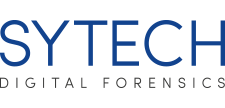Essential Cyber Security Best Practices for Small Businesses
Whether you run a small business or you’ve just started a new starter business, it’s essential to invest in cyber security practices, this is to protect the business from online vulnerabilities.
Due to many opportunities, markets and industries being available online, the online world is a necessity for many businesses to grow and progress. From computer-based tools, emails and website maintenance to complete management systems, many businesses now rely on online systems and softwares, but with these business enhancements comes the responsibility to keep the company’s data, privacy and information safe and secure.
In this blog, we’ll talk you through the best practices for cyber security that could potentially save the business from becoming the victim of a cyber attack that could result in huge financial and data losses.
What is Cyber Security?
Cyber security is how individuals and organisations reduce the risk of cyber attacks and consists of technologies, awareness, processes and controls. Cyber attacks are usually aimed at assessing, changing, or destroying sensitive information. This could be anything from extorting money from users to interrupting normal business processes.
Theft of digital information (another form of cyber attack) has become one of the most common threats to businesses who use online facilities. This is avoidable, but it is up to each business who uses these online facilities to take responsibility for their cyber security.
It is essential that businesses work hard to create a culture of security that will keep the businesses data private and secure, along with securing their staff’s safety. This responsibility can only stand to give clients and customers enhanced protection and confidence in using the businesses service or product.
Cyber Security Best Practices
Protect Your Assets
There are several ways you can protect your computers, networks and information from online threats such as viruses and malware:
- Install the latest security and antivirus software.
- Set the security and antivirus software to run a scan after each update.
- Implement key software updates as and when they are available.
- Install firewall security for the businesses internet connection.
- Ensure that systems are protected by a firewall software, whether employees are working from the office or working from home.
Brief Your Employees
It’s important to make sure the businesses employees are trained to understand the importance of cyber security practices. Reiterate the importance of security and data protection policies every few months to ensure all staff are in the know, and make sure to run new starters through your practices so each employee is in the know.
These practices can include:
- Establishing appropriate internet use guidelines that detail penalties for going against these cyber security practices
- Implementing strong passwords across all softwares and systems
- Establishing how to handle and protect customer information and any other vital data each employee may come across
Regarding passwords, employees should be briefed before creating any passwords at the company to only use unique and strong passwords. Passwords should also be changed every three months to avoid vulnerability.
Implementing multi-factor authentication can also help with the businesses level of security. Multi-factor authentication is becoming more and more common to help businesses stay safe and secure. This form of security usually requires additional information beyond a password to gain entry, such as sending a code to your mobile phone device to type into the system to gain access.
Limit Employee Access Where Necessary
It’s important to keep your business as secure as possible, in all areas of the business. Things like company computers should only be used by employees who require them to complete their duties.
If it’s necessary for all employees to use a company computer, ensure each employee has an individual user account and only provide the necessary staff members with access to the specific data systems essential for them to perform their role. It’s also important to limit authority to install software for each employee as this should be something that is permitted when necessary.
Tablets and laptops can be easily misplaced or stolen, so these hardwares will need to be locked up or put somewhere extremely safe when not in use.
Wifi Network Security
Most businesses in today’s digital world will rely on wifi to be able to access the internet and any forms of online systems. It’s important to understand that your wifi is another way for your business to become a victim of cyber attacks.
To ensure that your wifi is protected, you need to make sure your wifi network is secure, encrypted, hidden, and your router is password protected with a strong password.
Contact Our Experts for Cyber Security Support
Here at SYTECH, we provide a variation of Cyber Services including Cyber Essentials Certification, Penetration Testing and Incident Response Services. If you’re unsure what your small business needs regarding Cyber Security Support, you can contact our team of specialists to find out more information.
The main Cyber Services we cover are:
We can offer advice and are happy to talk you through the options most suited to you and your business.
If you’d like to contact our team, you can find our phone number and email address via our contact page.
